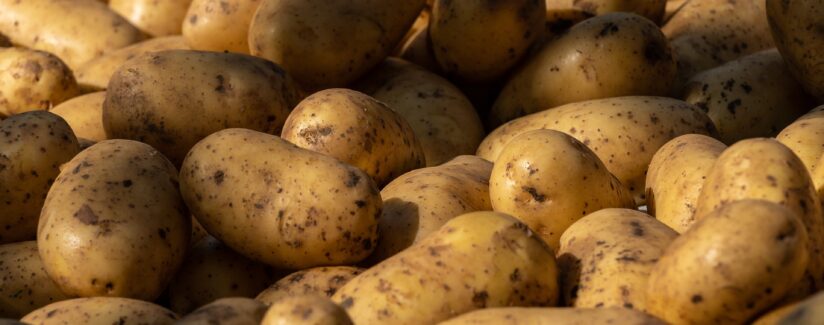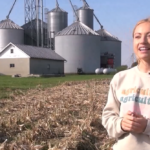
Is It Okay to Eat Potatoes That Have Sprouted?
12/11/2015
We had some potatoes at home that sprouted, which made some questions pop up in our minds. We talked with a few experts to learn more.
What causes potatoes to sprout?
Dr. Rich Novy, small grains and potato germplasm research geneticist from the USDA Agricultural Research Service, explains: “Potatoes have an inherent natural dormancy maintained by endemic plant hormones. The concentration of the hormones decreases over time in the tuber (potatoes or tubers are underground swollen stems), allowing the sprouting of tubers. This is a necessity in nature, if potatoes are to eventually reproduce by tubers to produce new plants.”
Are potatoes with sprouts safe to eat?
Dr. David Douches, director of the Potato Breeding and Genetics Program at Michigan State University, says: “Yes, however, the sprouts must be removed and discarded because they are not edible. When a potato begins to sprout, the starch inside the potato converts to sugars enabling the sprout/plant to grow. If the potato is still in good shape and is firm, it is fine to prepare as usual and it still has most of its nutrients. But if the sprouts are long and the potato has shrunk and wrinkled, then it is best to throw it out.”
Just curious – why are the sprouts called “eyes?”
Dr. Douches: “The ‘eyes’ are really just the buds of the tuber. They just got that nickname long ago because they kind of look like eyes and an eyebrow.”
Dr. Novy: “The eye of the potato is actually analogous to an axillary bud on a stem of plant and that is what forms the new plant after you plant seed in the soil. If you don’t have an eye on the potato piece that is planted, you will not have a shoot emerge to form a new plant.”
What’s the best way to store potatoes at home?
Dr. Douches: “Potatoes should be stored in a cool, dark and dry place. It is not recommended to store them in the refrigerator. Any that have turned green or slightly green should be discarded.”
Dr. Novy: “Potatoes should be stored in the coolest – but not freezing – place in your home (e.g., basement, garage in the fall/winter if insulated and temperatures don’t fall below freezing) to reduce shrinkage and premature sprouting of potatoes. Do not allow tubers to freeze! A thawed potato following freezing is not a pretty sight, nor is it fun to dispose of without disposable gloves being handy.”
Thanks for that tip! Are there varieties of potatoes that are best if you want to store them for long periods?
Dr. Novy: “Russet Burbank, a widely-grown potato variety, is one of the best varieties available for having long tuber dormancy with less sprouting prior to consuming.”
What if you do have potatoes that sprout – can you plant them in the garden? Will they grow to be like the original potato?
Dr. Novy: “Yes, if you plant sprouted potatoes in the garden they will grow into new plants like the original potato plant those tubers first came from — an example of asexual or clonal propagation. However, it is always best to plant certified potato seed from nurseries or garden catalogs in the spring rather than potatoes obtained from your grocer for better performance in the garden.”
Dr. Douches: “Purchasing ‘certified’ potatoes for planting either from a garden center or online is the best way to go. Plant pathogens (plant viruses, fungi, etc.) can persist in the tubers from one growing season to the next. Several years ago, our program developed gardening guides. They are available to download on our website here.”
Image by Alexei_other from Pixabay

























